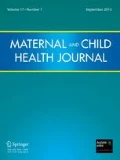Background: Postpartum depressive symptoms negatively affect the quality of life and daily functioning of mothers and infants. Little research has examined the impact of situational factors such as physical symptom burden and function on early postpartum depressive symptoms. Objectives: To explore the association between situational factors and early postpartum depressive symptoms. To predict correlates of early postpartum depressive symptoms. Methods: Cross sectional telephone survey of 720 mothers between 2 and 6 weeks postpartum. Mothers reported on demographic factors, physical and psychological symptoms, daily function, infant behaviors, social support, and skills in managing infant and household. The association between these factors and postpartum depressive symptoms were investigated with bivariate and multivariable analyses. Results: Nearly, 39% of patients screened positive for depressive symptoms. Bivariate analyses showed symptomatic patients were more likely to be nonwhite, have lower incomes, less education, a past history of depression, have higher physical symptom burdens, more physical functional limitations, more infant colic, receive less social support, and have lower-self-efficacy scores as compared with patients without symptoms of depression. In a multivariable model predicting depressive symptoms, nonwhite race (odds ratio (OR) of 1.96, 95% confidence interval (CI) of 1.38, 2.78), more physical symptoms (OR 1.16, 95% CI 1.01, 1.32), infant colic (OR 1.79, 95% CI 1.29, 2.50) lack of social support (OR 0.90, 95% CI 0.86, 0.95), and lower self-efficacy scores (OR 0.90, 95% CI 0.86, 0.94) were associated with depressive symptoms. Conclusions: Nonwhite race, physical symptom burden, infant colic, lack of social support, and lower self-efficacy scores are associated with early postpartum depressive symptoms. Further research is needed to investigate whether providing social support and teaching skills to enhance self-efficacy will reduce the incidence of early postpartum symptoms of depression.
Similar content being viewed by others
REFERENCES
Josefsson A, Angelsioo L, Berg G, et al. Obstetric, somatic, and demographic risk factors for postpartum depressive symptoms. Obstet Gynecol 2002;99:223–8.
Zayas LH, Cunningham M, McKee MD, Jankowski KR. Depression and negative life events among pregnant African-American and Hispanic women. Women's Health Issues 2002;12:16–21.
Vera M, Alegria M, Freeman D, Robles RR, Rios R, Rios CF. Depressive symptoms among puerto ricans: Island poor compared with residents of the new york city area. Am J Epidemiol 1991;134:502–10.
Beeghly M, Olson KL, Weinberg MK, Pierre SC, Downey N, Tronick EZ. Prevalence, stability, and socio-demographic correlates of depressive symptoms in Black mothers during the first 18 months postpartum. Matern Child Health J 2003;7:157–68.
Wells KB, Stewart A, Hays RD, et al. The functioning and well-being of depressed patients. Results from the medical outcomes study. JAMA 1989;262:914–9.
Cogill SR, Caplan HL, Alexandra H, Robson KM, Kumar R. Impact of maternal postnatal depression on cognitive development of young children. BMJ (Clin Res Ed) 1986;292:1165–7.
Seguin L, Potvin L, St-Denis M, Loiselle J. Depressive symptoms in the late postpartum among low socioeconomic status women. Birth 1999;26:157–63.
Field T. Maternal depression effects on infants and early interventions. Prev Med 1998;27:200–3.
Field T, Healy B, Goldstein S, et al. Infants of depressed mothers show “depressed” behavior even with nondepressed adults. Child Dev 1988;59:1569–79.
Gjerdingen DK, Chaloner KM. The relationship of women's postpartum mental health to employment, childbirth, and social support. J Fam Pract 1994;38:465–72.
Whooley MA, Avins AL, Miranda J, Browner WS. Case-finding instruments for depression. Two questions are as good as many. J Gen Intern Med 1997;12:439–45.
Ross LE, Gilbert Evans SE, Sellers EM, Romach MK. Measurement issues in postpartum depression part 1: Anxiety as a feature of postpartum depression. Arch Womens Ment Health 2003;6:51–7.
Ware J Jr, Kosinski M, Keller SD. A 12-item short-form health survey: Construction of scales and preliminary tests of reliability and validity. Med Care 1996;34:220–33.
Fawcett J, Tulman L, Myers ST. Development of the inventory of functional status after childbirth. J Nurse Midwifery 1988;33:252–60.
Bodenheimer T, Lorig K, Holman H, Grumbach K. Patient self-management of chronic disease in primary care. JAMA 2002;288:2469–75.
Mayberry LJ, Affonso DD. Infant temperament and postpartum depression: a review. Health Care Women Int 1993;14:201–11.
Gotlib IH, Whiffen VE, Wallace PM, Mount JH. Prospective investigation of postpartum depression: factors involved in onset and recovery. J Abnorm Psychol 1991;100:122–32.
Yonkers KA, Ramin SM, Rush AJ, et al. Onset and persistence of postpartum depression in an inner-city maternal health clinic system. Am J Psychiatry 2001;158:1856–63.
Ruo B, Rumsfeld JS, Hlatky MA, Liu H, Browner WS, Whooley MA. Depressive symptoms and health-related quality of life: the Heart and Soul Study. JAMA 2003;290:215–21.
Gjerdingen DK, Froberg DG, Fontaine P. The effects of social support on women's health during pregnancy, labor and delivery, and the postpartum period. Fam Med 1991;23:370–5.
Holden JM, Sagovsky R, Cox JL. Counselling in a general practice setting: controlled study of health visitor intervention in treatment of postnatal depression. BMJ 1989;298:223–6.
ACKNOWLEDGMENTS
The research reported here was Supported by Agency for Healthcare Research and Quality and Robert Wood Johnson Foundation grants.
Author information
Authors and Affiliations
Corresponding author
Additional information
The opinions, view, and conclusions expressed in this article are those of the authors and not necessarily those of the Robert Wood Johnson Foundation or Agency for Healthcare Research and Quality.
Rights and permissions
About this article
Cite this article
Howell, E.A., Mora, P. & Leventhal, H. Correlates of Early Postpartum Depressive Symptoms. Matern Child Health J 10, 149–157 (2006). https://doi.org/10.1007/s10995-005-0048-9
Received:
Accepted:
Published:
Issue Date:
DOI: https://doi.org/10.1007/s10995-005-0048-9


